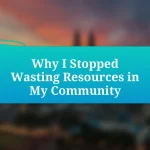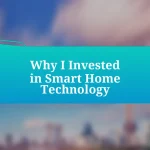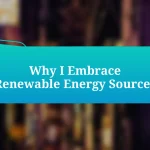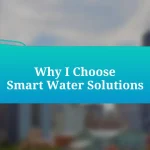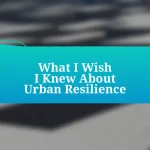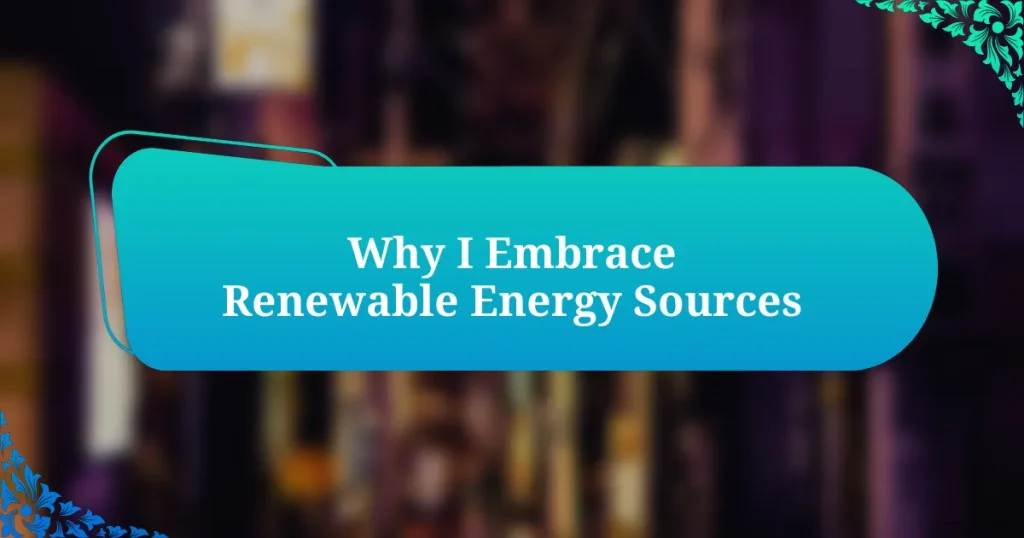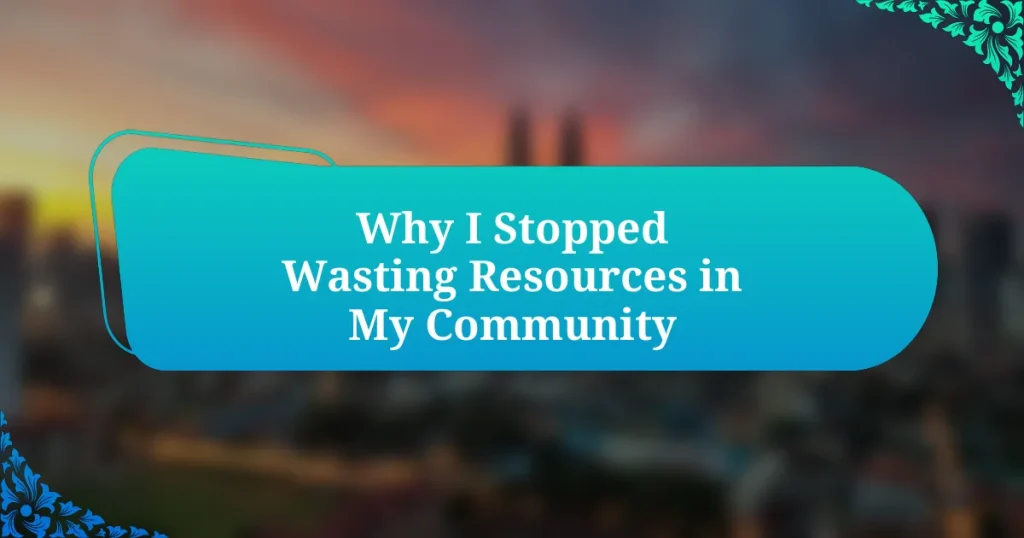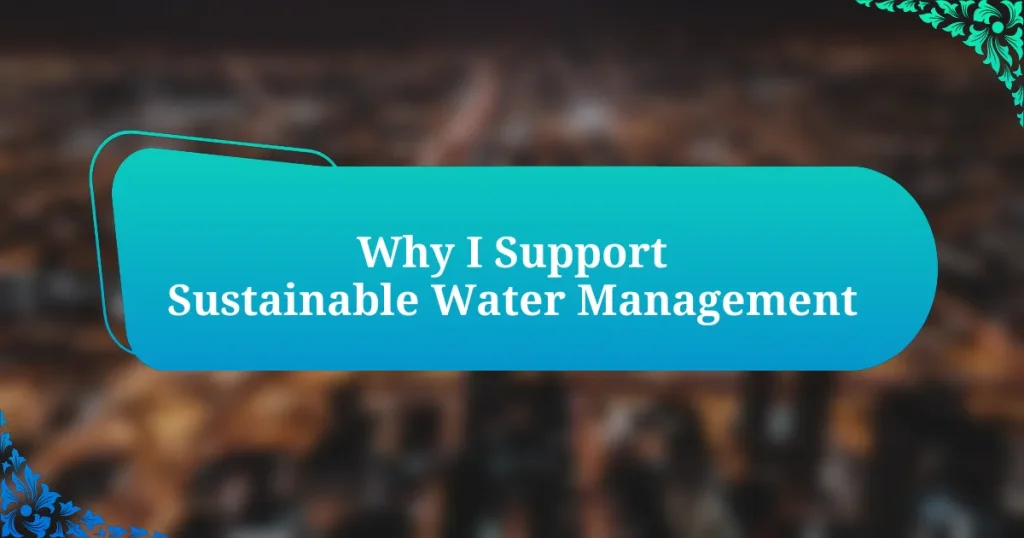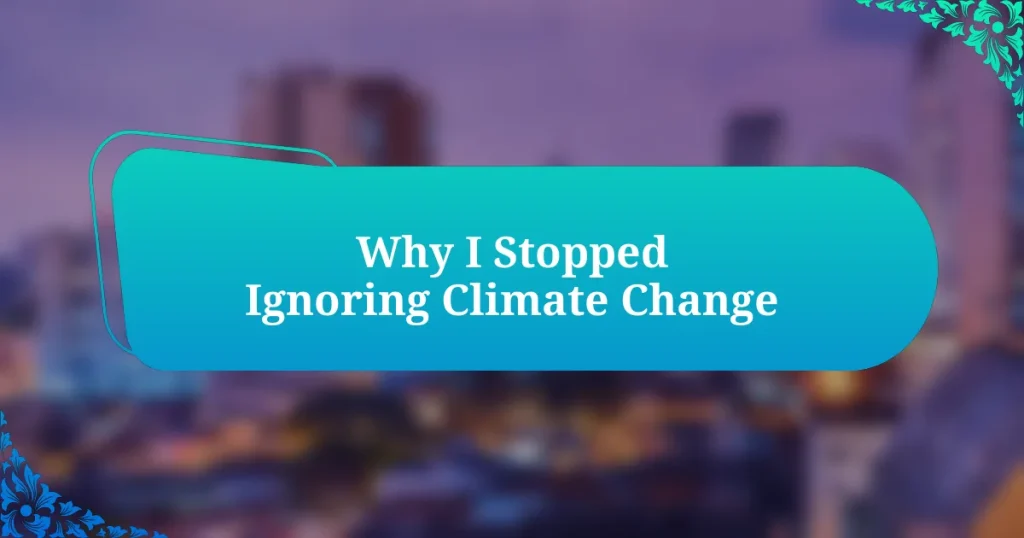Key takeaways:
- Renewable energy sources like solar, wind, and hydroelectric power are essential for creating a sustainable future and reducing reliance on finite resources.
- Transitioning to renewable energy enhances energy security, combats climate change, and improves air quality, benefiting both current and future generations.
- Smart cities integrate renewable energy through efficient energy management and real-time data monitoring, promoting sustainable urban living.
- Embracing renewable energy fuels innovation and economic growth, creating jobs and driving technological advancements in the sector.
Author: Clara Whitfield
Bio: Clara Whitfield is an acclaimed contemporary author known for her poignant storytelling and evocative prose. With a background in psychology, she intricately weaves themes of human emotion and personal growth into her narratives. Clara’s debut novel, The Echoes of Yesterday, received critical acclaim and garnered her a loyal readership. When she’s not writing, Clara enjoys exploring nature and visiting local coffee shops, where she often draws inspiration for her next story. She currently resides in Portland, Oregon, with her two rescue dogs.
Understanding renewable energy sources
Renewable energy sources, such as solar, wind, and hydroelectric power, harness natural processes that replenish themselves over time. I often think about how every time I see solar panels glinting in the sun, it’s like seeing the future unfold. Isn’t it fascinating to realize that we can capture energy from the sun that has been shining for billions of years?
When I first learned about wind energy, I was amazed by the simplicity of it: giant turbines spinning as they transform wind into electricity. It’s a stark contrast to conventional energy sources, which can leave us feeling disconnected from the environment. Have you ever stood on a hillside, feeling the rush of wind? That same wind can be a powerful ally in our quest for sustainable energy solutions.
Hydroelectric power often evokes a personal connection for me, as I recall camping near rivers that seemed alive with energy. The sheer force of flowing water is awe-inspiring, making me wonder how we can better harness that power. What if we expanded our use of renewable resources to ensure a cleaner, more sustainable environment for future generations?
Importance of renewable energy
The importance of renewable energy cannot be overstated, especially in our increasingly vulnerable world. I remember a time when I felt a sense of helplessness during a power outage caused by a storm. That experience made me realize how dependent we are on traditional energy sources and their vulnerabilities. Transitioning to renewable energy not only enhances energy security but also reduces our reliance on finite resources, allowing us to create a more stable and resilient energy future.
Moreover, adopting renewable energy sources offers significant environmental benefits. I think back to the clean, fresh air I breathed during a hike in a national park, untouched by pollution. It’s an experience that adds weight to my belief that transitioning to renewable energy can help combat climate change and improve air quality. By reducing carbon emissions, we protect the planet for ourselves and future generations, preserving the natural beauty we often take for granted.
Finally, embracing renewable energy fuels innovation and economic growth. I witnessed this firsthand at a local startup fair, where various companies showcased cutting-edge technologies in solar and wind energy. It became clear to me that the shift towards renewables not only creates jobs but also drives technological advancements that can improve our quality of life. Isn’t it inspiring to think about how we can contribute to a sustainable economy while fostering environmental stewardship?
Role of smart cities
Smart cities play a crucial role in integrating renewable energy sources into urban life. I recall visiting a city where solar panels adorned nearly every rooftop; it felt like stepping into the future. Witnessing this inspired me to think about how smart grids can optimize energy consumption, ensuring that resources are used efficiently and sustainably.
In addition to energy management, smart cities facilitate real-time data monitoring that helps reduce waste. I remember discussing with an urban planner about how smart sensors can detect energy spikes and adjust distribution accordingly. It’s fascinating to realize that with the right technology, cities can become not just consumers of energy but also smart managers, laying down a blueprint for a cleaner environment.
Ultimately, smart cities are more than just technology-driven environments; they embody a lifestyle shift towards sustainability. Reflecting on my experiences, I often wonder how many more cities could adopt these innovative strategies. The potential for holistic living solutions that prioritize renewable energy is both exciting and necessary for our future.

